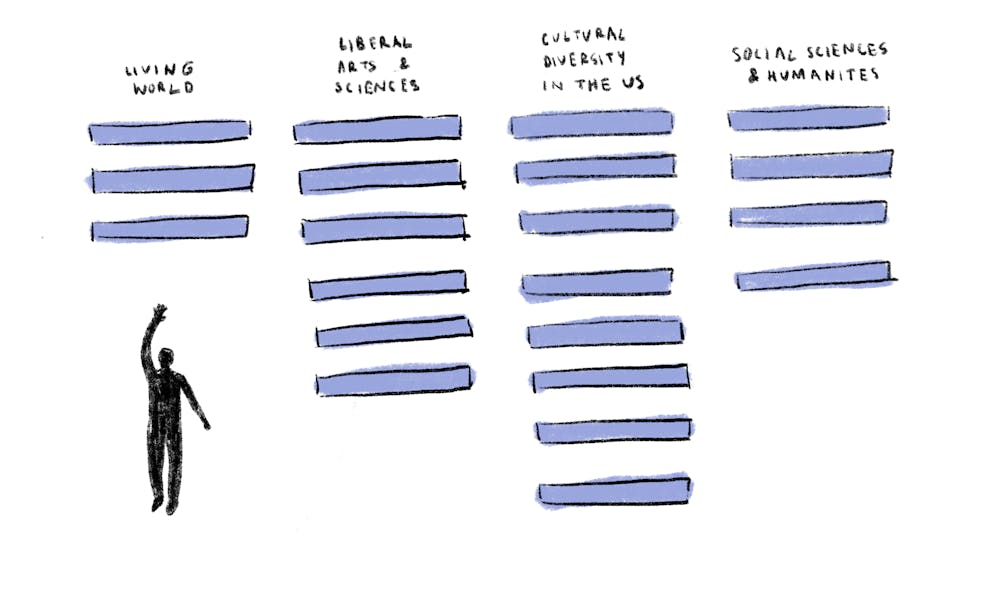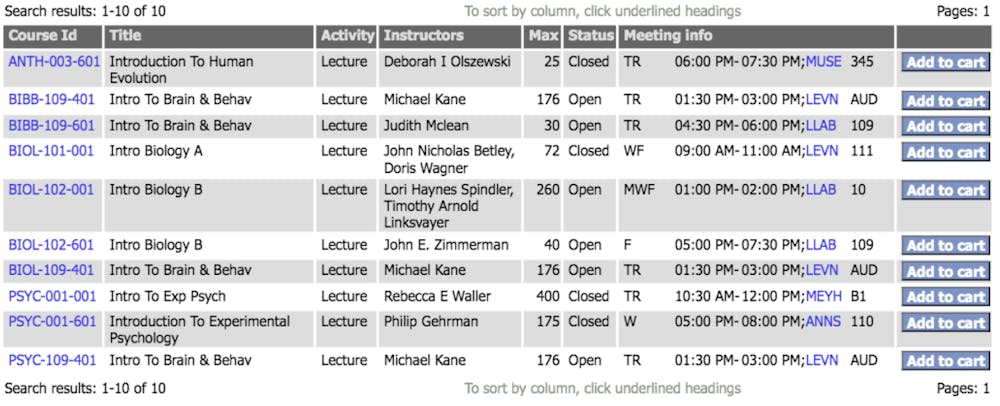
When it comes time to choose courses for the upcoming semester, Penn undergraduates have to be cognizant of their respective schools’ graduation requirements. The College of Arts and Sciences, the Wharton School, the School of Engineering and Applied Science, and the School of Nursing each have their own set of requirements for their respective student bodies. But, when students search for possible classes to fill these requirements, they are often met with limited options in terms of both the content and availability of these courses. This lack of options may drive students to choose classes they are less passionate about, even if they are interested in the general topic of the requirement.
To mitigate this issue, Penn’s four undergraduate schools should offer a more diverse selection of courses that fulfill general education requirements. In addition to having a greater number of topics to choose from, students could also choose class times that fit their busy schedules, rather than being pigeonholed by a required class that blocks them from other courses of interest. One possible solution would be to allow more classes to count for multiple requirements, which would give students more flexibility and let them choose classes they are passionate about.
A more varied choice in courses would not leave students feeling forced to choose a class they have no interest in simply to fill a requirement. In the College, for instance, many students face difficulty fulfilling the Living World sector. When filtering the Spring 2020 courses by sector on PennInTouch, the search returns just 10 results that meet this requirement. Most of these overlap in subject, with biology and psychology forming the most recurrent topics.

With so few courses offered, students may face difficulty getting into classes that fulfill the Living World requirement, making it hard for them to graduate on time. The University should offer more courses, and a variety of them, that fulfill each sector or foundational requirement to make it easier for undergraduates to explore different topics throughout their time at Penn.
Students also have busy schedules outside of class, whether due to athletics, research, extracurriculars, or work-study jobs. Because there is a massive lack of options among available classes that fulfill sector requirements, students may have difficulty finding a class in a time slot that works for them. If Penn provided more options for each requirement, students could fit these requirements into their schedules more easily. Understanding and catering to students who are juggling many priorities is imperative to supporting a diverse and healthy student population.
One solution to class selection that can ease the stress of filling requirements is having more courses that “double count”, meaning they fulfill two requirements. For example, Survey of the Universe (ASTR-001) counts for both the Physical World sector and the Quantitative Data Analysis approach. However, only 56 of the hundreds of classes Penn offers this semester double count, and they are often full or have waiting lists due to the large number of students interested in fulfilling multiple requirements at once. If Penn were to expand double-counting classes, it would ease the burden of fulfilling requirements and allow students to be more flexible with their already rigid schedules.
The current course selection process pressures students to fill certain requirements with classes they have little interest in, or those where they have to rearrange their entire schedule to attend. By forcing students into these situations, Penn is missing out on engaging its attendees with courses they might enjoy more. An oceanography class may teach a room full of humanities majors a few interesting scientific facts, for example, but their time is likely better spent elsewhere.
Editorials represent the majority view of members of The Daily Pennsylvanian, Inc. Editorial Board, which meets regularly to discuss issues relevant to Penn's campus. Participants in these meetings are not involved in the reporting of articles on related topics.
The Daily Pennsylvanian is an independent, student-run newspaper. Please consider making a donation to support the coverage that shapes the University. Your generosity ensures a future of strong journalism at Penn.
Donate







